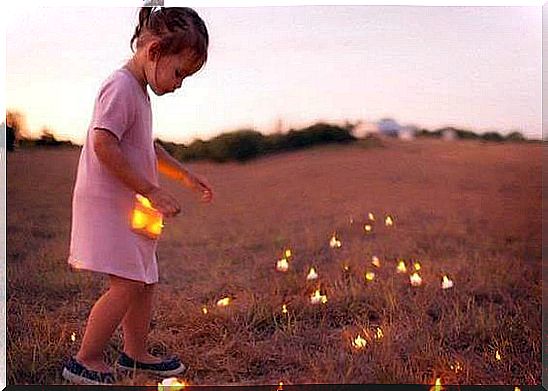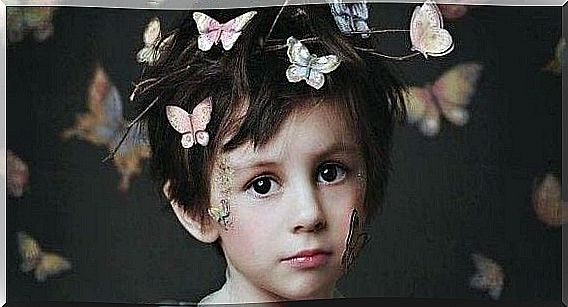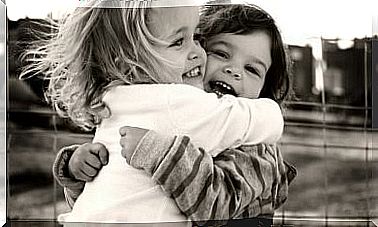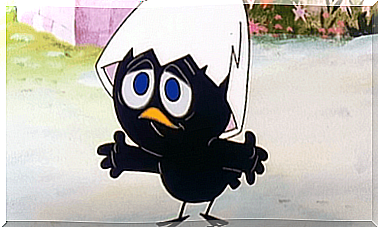Despite Years Of Education, We Still Don’t Know How To Love Ourselves

Insufficient. Hyperactive. Low motivation. Provocative. There are many labels that are stuck on children throughout their school career.
On the other hand, we rarely take the time to observe them in order to understand what emotion is behind each difficult student.
In contexts such as business or politics, it is curious to see the importance given to Emotional Intelligence.
We see it as something essential for any professional, while Educational Institutions do not consider Emotional Intelligence as a skill to be fostered.
Education must give us skills that can enable us to fend for ourselves. There is no point in making our children experts in science or literature if we do not teach them first about self-esteem, respect or empathy.
The weight of cognitive skills is always something special for the school system. Emotions are considered “taboo”.
We say to ourselves that it is preferable that they confine themselves to the private and intimate sphere of each child.

An education that trains minds, but not people
Children and adolescents today are skilled strategists when it comes to new technologies.
The emoticons in their messages often represent their only connection with the world of emotions.
However, as soon as they move away from their smartphone, they are unable to manage or see situations such as bullying, for example.
Begoña Ibarrola, psychologist and researcher, explains to us that in the centers which have integrated Emotional Intelligence in the classrooms and the school curriculum, the results improve noticeably… and this gives hope, undoubtedly.
Education aims to train those who will change the world tomorrow: thus, the goal is to educate happy people, capable of happiness, respectful and full of hope.

Why is this transformation so necessary in our education still not effective? Let us think for a moment about the following aspects:
- The circular design is determined most of the time by a political tendency that governs the type of study plan it considers most adequate.
- The weight of the cognitive is still very much entrenched in our school system, even if theories such as “Gardner’s multiple intelligences” speak to us about the obvious need to work on Emotional Intelligence in children, and this from an early age.
In addition, we must take into account that any change at the institutional level takes time.
We need a social awareness, because investing in emotions is investing in living together, it is learning to be more suited to human relations, respect and this change of approach consisting in leaving aside the education of perfect children to form happy people.

Raise unique children, not equal students
In a society as changing as the one in which we live today, and with very high professional competence, there is no point in training equal students, all specialists in the same subjects.
It is necessary to give priority to human value, and to favor the natural capacities of the child so that he discovers for himself what is best for him and that he offers it to the world in order to be “ unique ” .
One aspect that must be taken into account is that very often educational institutions are placed all the weight of a child’s education.
This is an erroneous approach: we are all educational agents, the family being the essential and ideal environment that we must really take into account.
The family, the first environment for Emotional Intelligence
Neuroscience tells us clearly: the emotional context in which a child grows up in the first years of his life will largely determine his later development, and even his personality.
- Recognition, reciprocity, attachment, and emotional communication are threads of balance that will allow the child to grow, free and mature.
- If you want to give the world a child who can respect others, listen, and put affection before aggression, then you need to be a role model for them. Pay attention to the words you use, your judgments, your actions; be the best example.

School, a microcosm of the social environment
The school will be for the child a clear example of this world which he will have to face tomorrow.
Relationships with peers and with authority figures (teachers and teachers) will enable him to acquire new and important skills.
- In centers where emotionally healthy habits and tools already apply, children are very receptive to this type of knowledge.
- They integrate them on a daily basis because they see that it works, that they are useful strategies through which they can improve their relationships and be more assertive when it comes to seeing aggression coming or forging friendships.
- Emotional Intelligence becomes a habit that can allow children to optimize their way of learning, to channel their anxiety or nervousness.
Consequently, the school results are better and they gain self-confidence; this is really encouraging information.
To educate is to learn to leave a mark in the hearts of children










